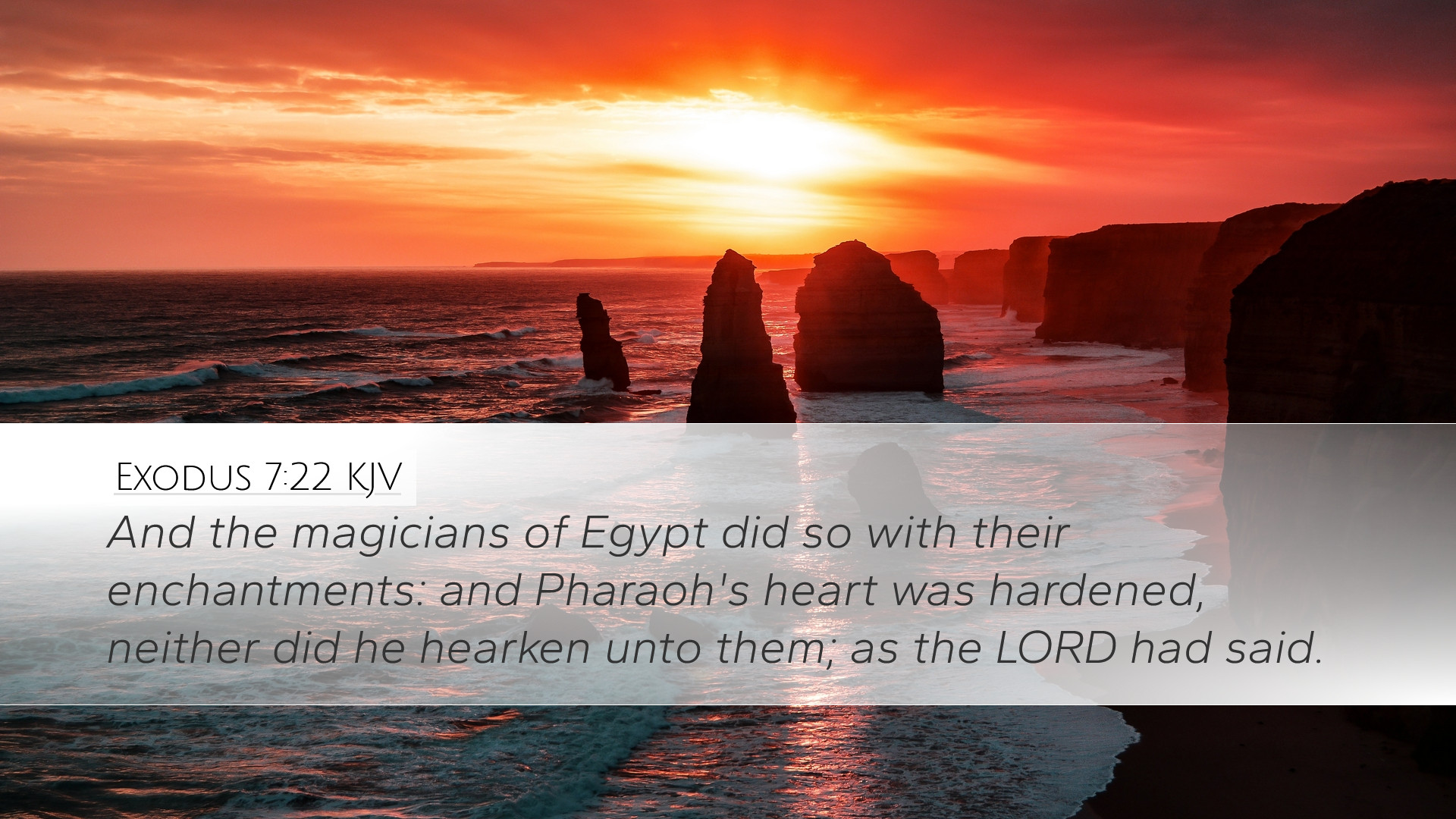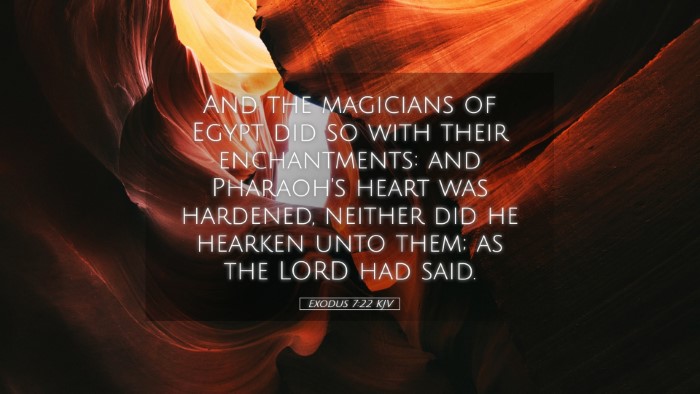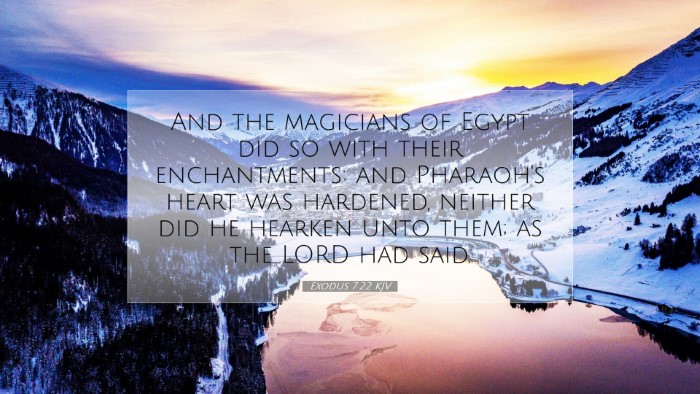Exodus 7:22 - Bible Commentary
Verse Reference: Exodus 7:22 (KJV) - "And the magicians of Egypt did so with their enchantments: and Pharaoh's heart was hardened, neither did he hearken unto them; as the LORD had said."
Context and Background
This verse occurs within the narrative of Moses and Aaron confronting Pharaoh to demand the release of the Israelites from bondage. Before this encounter, God had already demonstrated His power through signs and wonders, which included the turning of the staff into a serpent and the waters of the Nile into blood.
The context of Exodus 7:22 is crucial as it reveals the spiritual struggle between faith in Yahweh and the magical arts practiced in Egypt. It demonstrates the hardening of Pharaoh's heart, a recurring theme throughout the Exodus narrative that reflects the sovereignty of God over human stubbornness and rebellion.
The Magicians of Egypt
The verse notes how the magicians of Egypt were able to replicate the miracle of turning water into blood through their enchantments. This is significant for several reasons:
- Challenge to God: The magicians' ability to duplicate the miracle demonstrates a challenge not just to Moses and Aaron, but to the authority of God Himself. They sought to prove that they could match God's power, thus maintaining the status quo of Pharaoh's disbelief.
- Deception and Illusion: The enchantments used by the magicians likely involved deception and illusions. While they may have temporarily convinced Pharaoh, their replication of God's power was superficial and transient. This serves as a reminder that human abilities are limited in comparison to the divine.
- Spiritual Warfare: The confrontation highlights the spiritual warfare inherent in the struggle between God and earthly powers. The magicians represent the spiritual authority of Egypt, which is ultimately powerless against the God of Israel.
The Hardening of Pharaoh's Heart
The phrase "Pharaoh's heart was hardened" is pivotal in understanding the dynamics of this passage. Commentary insights reveal several layers to this hardening:
- Divine Sovereignty: The hardening of Pharaoh's heart fulfills God's sovereign plan. It illustrates God's control over the situation; what might seem like a mere obstinacy on Pharaoh's part is part of a larger divine narrative leading to liberation for the Israelites.
- Free Will vs. Divine Intervention: The tension between God's sovereignty and Pharaoh's free will is compelling. Pharaoh’s hardness was partly a result of his own pride and refusal to recognize God’s authority, showing that divine hardening can occur in conjunction with human rebellion.
- Judgment and Mercy: God’s hardening of Pharaoh serves as a warning, emphasizing that persistent disobedience can lead to a state of irreversible judgment. Pharaoh's heart hardening acts as a poignant reminder of the consequences of rejecting God's commands.
The Implications for Today
For current theologians and pastors, this verse presents meaningful applications:
- Recognizing God's Authority: Believers are reminded to acknowledge God's authority in all aspects of life, resisting the allure of cultural or worldly powers that seek to undermine divine truth.
- The Nature of Miracles: The account warns against attributing God's miraculous works to mere human manipulation or sorcery. Engagement with the miraculous requires discernment and a proper understanding of God's holiness.
- Repentance and Hardness of Heart: Reflecting on the state of one’s heart is essential. This passage invites individuals to consider whether there are any areas of life where they may be hardening their hearts against God's commands, resisting transformation and grace.
- Spiritual Warfare: Understanding the spiritual dimensions of opposition faced by believers today promotes vigilance in prayer and spiritual discipline, acknowledging that we are engaged in a battle against powers that seek to distract and lead astray.
Conclusion
Exodus 7:22 encapsulates profound themes of divine authority, the complexity of human free will, and the nature of faith and resistance. Through a careful examination of the text, as highlighted in public domain commentaries, we find rich lessons for spiritual growth, communal faith, and an understanding of God’s enduring sovereignty even in the face of deep-seated opposition.


